|
The most significant event in my life as an Indian woman happened before I was even born...
What do I mean by this provocative statement? I mean that my soul (if you believe in souls) was lucky enough to be born to a family that wanted a girl, and that did not see my life as less valuable because I was a girl. From the moment I was conceived, like most Indian women, I have been at risk. First, at risk for a sex-selective abortion. In India it's illegal for a provider to tell you the sex of the fetus because of how often families will have an abortion because their child will be a girl. It was illegal in 1992 when I was born and it is illegal in 2021 because this problem persists today. Next, at risk for female infanticide. If you're not familiar, this is the practice of killing babies soon after their birth because of how undesirable it is to have a child who is a girl. Because of whom I was born to, I escaped these risks. While other Indian girls were being married off as child brides (look up the rate of child marriage if you don't believe me), I was given the opportunity to study, to learn, to become educated. While other young women were being pressured to get married, I was being encouraged to do what was right for me and to make that decision if and when I wanted to. While other women are forced or coerced to stay in relationships and marriages that are abusive, I know that if I was ever in those circumstances, I would be fully and unconditionally supported to end my marriage. There are many practical barriers to women leaving abusive relationships but many women don't even get the emotional support needed to make that difficult decision. The stigma of being a single woman, a divorced woman, a single mother is still so immense, it's not even considered a viable option. I could go on and on. I wholeheartedly believe that if I had been born two doors down, my life could have been completely different or even over by now. This is not a post about how amazing my parents are or how terrible other parents are. This is about a society and a culture that is predicated on women's bodies, labor, and lives being worth less. Raising a daughter with pride is an act of rebellion in and of itself when we live in a society that constantly tells you that women are dispensable and disposable. It doesn't help us to lay the blame on individual actions but rather to focus on changing the structures and the institutions that have led to the patriarchal society that we live. Yes, we need to address our individual gender biases, but as a budding social epidemiologist, I want us to focus on systems more than on individuals. How can we change the system so that a new mom doesn't feel compelled to suffocate her own child because of the shame of having a girl? How can we change the system so that women are not seen as objects? So that violence against women is not the norm? So that a husband cannot rape his wife and suffer no consequences because marital rape is not a crime? Hint: It is not the death penalty. How can we create a world where women are truly free? There is still a long way to go before there is actual equity in workspaces, relationships, and every facet of our life. I hope this Women's Day we can move away from policing women, from infantilizing women, from objectifying women, from dehumanizing women to actionable steps that will bring about real change in the lives of women all over the world. I want feminism that makes space for *all* women, and yes trans women are included in this. I don't want a pink rose or a meaningless gesture. Like other women, I want change. I want radical change.
1 Comment
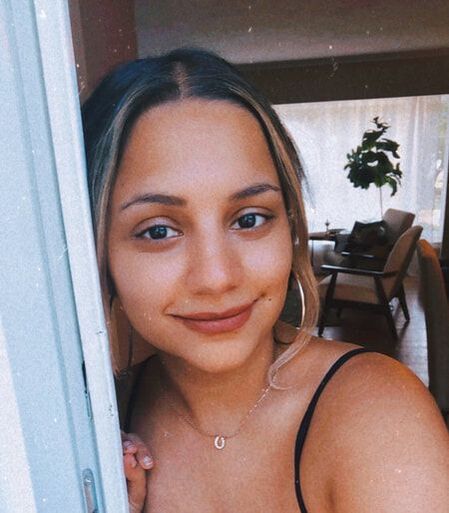 Even though I’ve been working in mental heath for almost a decade now, like most people, I didn’t initiate therapy until I had a crisis. And like many people, I let it slide when things got better. Cut to a few years later and I fell back into the same hole. This time, because of the skills I had developed from the last time, I was able to recognize my symptoms earlier. This time, I didn’t wait until things had escalated beyond my control before I sought professional treatment. Today I’m going to focus on *why* I think therapy is important but I want to acknowledge the barriers that exist to getting therapy (cost, availability, stigma, etc.). These are very real barriers & any discussion of mental health should include a discussion on how to make sure that it is equitable, affordable, accessible, non-judgmental, and high-quality. It’s easier said than done because of the stigma, but I think therapy is something that should be encouraged even when things in your life are going well and even if you feel amazing. I say this because you can learn valuable lessons and build a toolkit of habits and skills that will come in handy throughout your life. The reality of life inevitable means that at some point you will face a challenge, you will deal with a loss, and/or you will be confronted with life circumstances that impact your mental wellbeing. It’s good to already be learning how to prioritize your mental health and take care of yourself so that you’re better equipped for the things that life throws at you. The second reason I encourage people to go to therapy is because you might have an undiagnosed mental disorder that could benefit from intervention. There’s a whole other conversation we can have about the pros and cons of the medical model of mental illness, but the point I’m making here, is that it’s important to recognize that sometimes you might not even realize that everything could be better. Because mental disorders are so stigmatized and symptoms are often internalized, you might not even be aware that the amount of worry you’re having is excessive, or that your emotions are severely dysregulated, or that the difficulty you have in focusing on simple tasks is atypical. Most importantly, you might not realize that there are evidence-based treatments (behavioral and pharmaceutical) and accomodations that could improve your day to day experiences and quality of life. To combat the stigma, we have to unequivocally reiterate that there is absolutely nothing wrong with being diagnosed with a mental disorder, and there is nothing wrong with receiving treatment including medication. Starting therapy is a great way to engage with the mental health system, to get diagnosed, to get referrals to different types of providers, and to establish a plan to improve your wellbeing. If you’re on the fence about trying therapy, I hope this post encouraged you to go ahead and give it a try. If you have any questions please let me know in the comments! With Valentine’s Day just around the corner, I wanted to share my thoughts on some key features of strong romantic relationships that I’ve noticed over the years.
We often hear about the importance of communication, trust, honesty, and respect in a relationship, all 100% crucial. However, there are three additional values, that I don’t see discussed as often, but that I think make up extremely important pillars of a strong partnership. This is based on my own relationship but also advice I’ve gotten from people who’ve been partnered for decades and who really have a lot of wisdom to share. The first pillar is privacy. Although I’m very public about my life on social media, I believe that the intimacies of a relationship deserve some privacy. For me this means I’m careful about what I share about my marriage and discerning about whom I share it with. Depending on the situation I might seek counsel from a small number of people, but for the most part privacy is fundamental to making sure we both feel comfortable in our relationship. This means the two of us spend more time problem-solving with each other rather than bringing others into our space. In other words, we spend more time talking to each other, rather than about each other. The second pillar is commitment. All couples have conflict. All couples face challenges. Some are expected (e.g. disagreement over parenting styles) and some can be quite unexpected (e.g. infidelity). The advice I’ve gotten from experienced couples always boils down to this: are you committed to *trying* to make it work? How you approach a challenge, big or small, is really what defines your relationship. Sometimes you can work hard and overcome the challenge. Sometimes, you try and you can’t salvage what you had. And that’s okay. It’s okay to end a relationship that is no longer working. The third pillar is separation. It’s easy for your relationship to become all-consuming, trust me I’ve been there! As I’ve gotten older, I’ve realized the importance of keeping our individual identities separate. My husband and I have cultivated different hobbies, different friends, and different interests. It’s important not to lose yourself in your relationship. I think this is especially important advice for young women who sometimes feel like they need to make themselves smaller to accommodate their partner’s needs (a function of the patriarchy ugh). Focusing on yourself and your own needs should continue even if you’re partnered up. You’re separate people who are building a life together, you can do that without blurring into the same person. So, there you have it! Three values that I think are fundamental to a strong romantic partnership! If you have any thoughts, please let me know in the comments!  Before we start off, I want to put a disclaimer that my blog series about higher education is very US-centric. This may not apply in other countries so please keep that in mind! Okay, let’s get started! A fully funded PhD funding package typically contains the following things:
In my opinion, fully funded is a misnomer because there are often additional fees that are not covered. For example, fees for the athletic center, or facilities fees, health fees, or some additional fees that the university expects from you. These can range from $200 - $1000 a semester. This is the equivalent of the ‘fine print’ in a contract. Make sure you ask about this if it’s not listed on their website! A second reason it’s a misnomer is because the stipend may not be adequate to live comfortably. Cost of living varies widely from place to place. A $25,000 stipend may be able to cover all of your costs in some places in the US, and barely any of your costs in other places. One quick way to estimate whether the stipend they offer is acceptable is to visit http://www.phdstipends.com/ This is a website run by Dr. Emily Roberts where you can see the “living wage ratio” and also compare stipends across different universities, different programs, and different cities. A third reason it’s a misnomer is because academic funding is sometimes only during the fall and spring, which means May to August is not guaranteed. This is called a 9-month funding package. Again, inquire about this. Is it a 12-month funding package or 9-month? If it's 9-months, how do people usually fund their summers? These types of questions are important to know beforehand so you can start to make a budget and figure out whether you'll need additional financial support (scholarships, loans, etc.). Lastly, a question I get a lot is whether all of the above applies to international students. YES, most universities do fund international students for their PhDs! This is usually listed on their website but you can always email them to ask about this. Getting adequate funding for international students is especially important because this is what will be printed on your i20 and will be a determining factor in whether or not your student visa is approved! So, there you have it! If you have any questions, let me know in the comments! I’ve been thinking about role models a lot as we mourn the loss of my grandfather, and the last of the four grandparents. I’m not sure what we did in our last life, but my sister and I really hit the jackpot on grandparents in this life. Although I was gifted a different amount of time to spend with each, they have all been exceptional role models. Today I want to share them with you...
Ajja (1920 – 1993) was a freedom fighter who left us too early. Although I met him just briefly as an infant, I’ve heard only good things. My older cousin who spent more time with him speaks fondly of his kindness. I often wonder if that’s where my passion for social justice comes from. When I’m demotivated and disheartened, I think about the stories I’ve been told about him, about the time he spent in jail during India’s freedom struggle, and about how the courage of those like him made the lives we have today possible. It gives me hope. Chottimama (1944 – 2012), who also passed much too soon, was quite the feminist icon. Standing at just around 5 feet – although you wouldn’t know it from her exuberating persona – she filled our lives with joy and with strength. Her wit was like no other, and I definitely inherited a sarcastic streak from her. You could always find her with a book in one hand and a drink in the other. She showed us that to be a woman is to be bold, to be unapologetic, and to take up as much space as you need. Bapama (1921 – 2017) was the pillar of the family, a true matriarch. Even though she lost her husband and a son, you wouldn’t know it from her delightful personality and her constant radiant energy. I’ve not yet met another person who had such a twinkle in their eye, even in her late 90s! Of all the things she bestowed upon her three granddaughters, I would say having grace is probably the most important one. She moved through the world with a quiet unassuming grace. We can only aspire to that. Pappa (1936 – 2021) was everything that you would want in a grandfather wrapped up in a thick beard and the smell of Brylcreem hair gel. As kids he entertained me with board games, the only bedtime story he knew (Androcles and the Lion) and took me on “granddaughter-grandfather” dates where he would have a beer and I would have a Canada Dry (served in a beer glass, of course). Born too early to be a tech bro, he picked up computer skills post-retirement and was the only grandfather I know who was on Instagram, Facebook, and Twitter! He reminded us that age really is just a number. Although they are gone now, I’m reminded of the precedent they set. To be resilient, to be kind, to be open to new opportunities, to be accepting, and to be ourselves. Always, to be ourselves. |
AuthorI use this space to share my thoughts on a variety of academic and non-academic topics! Happy reading! Categories
All
Archives |
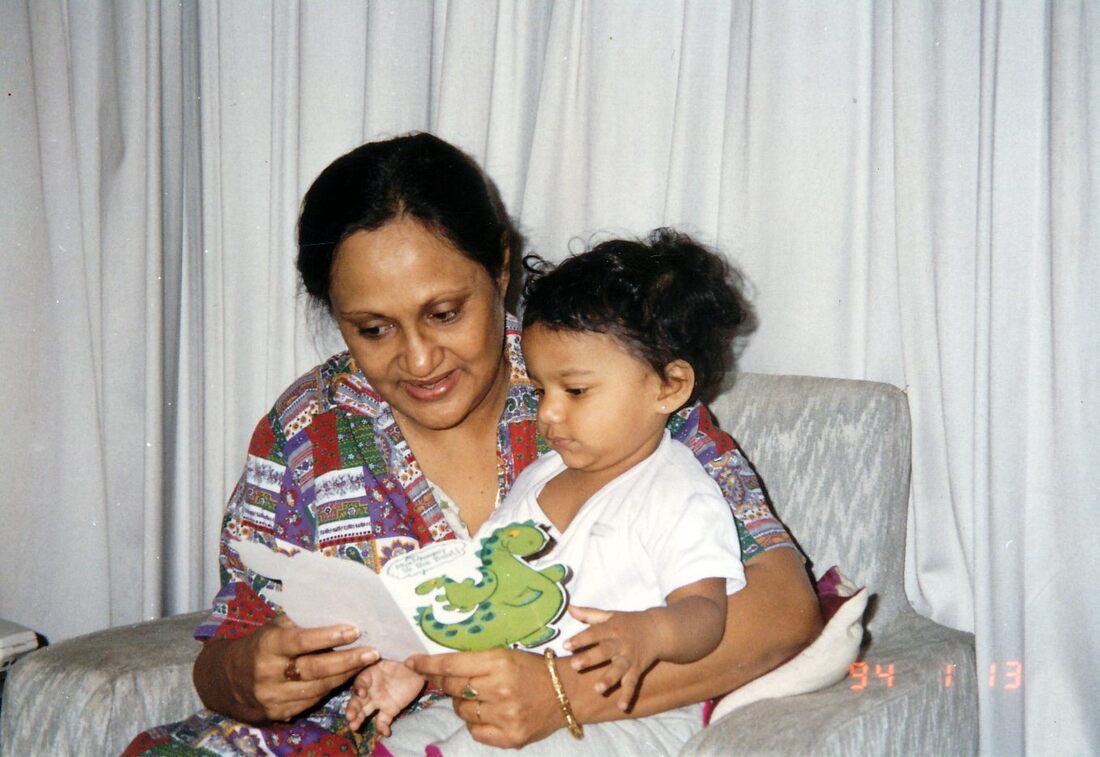
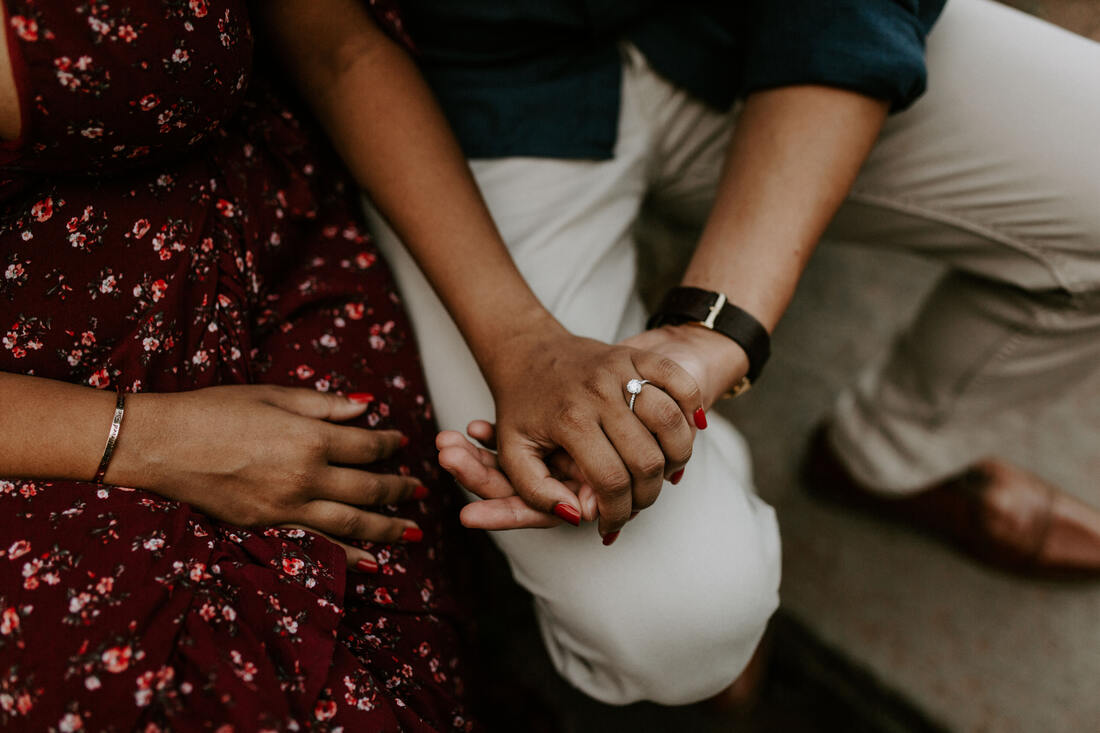
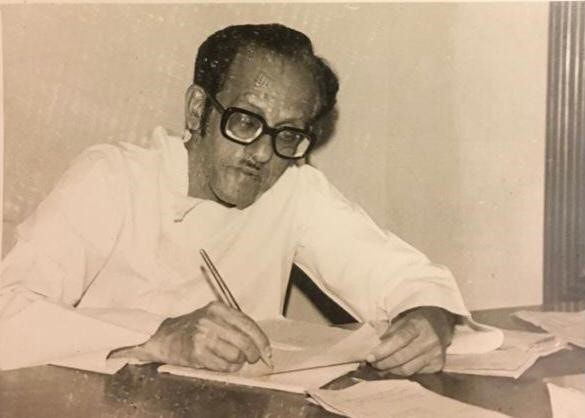
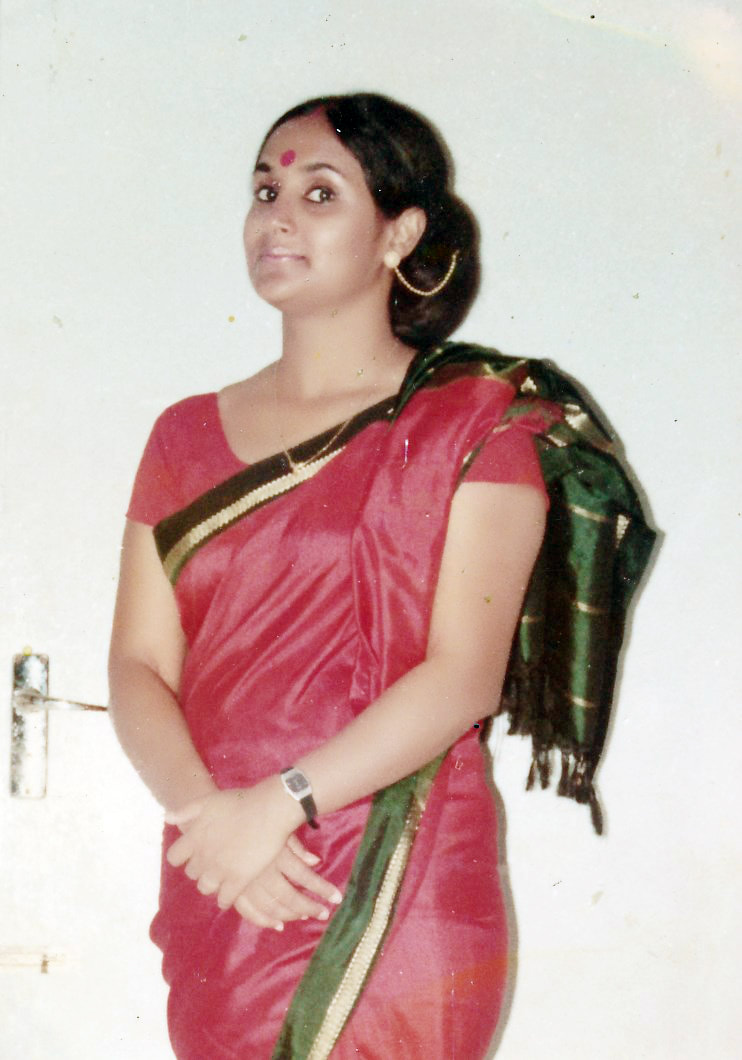
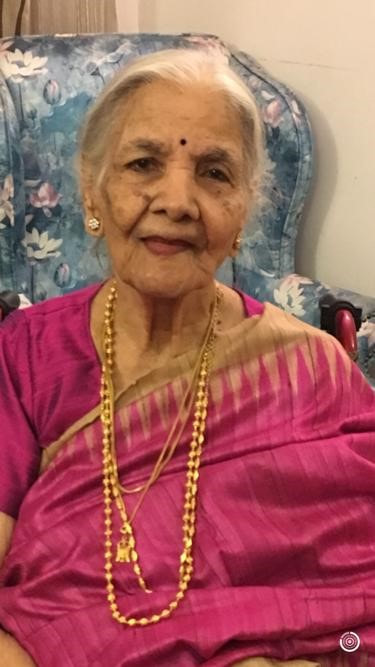
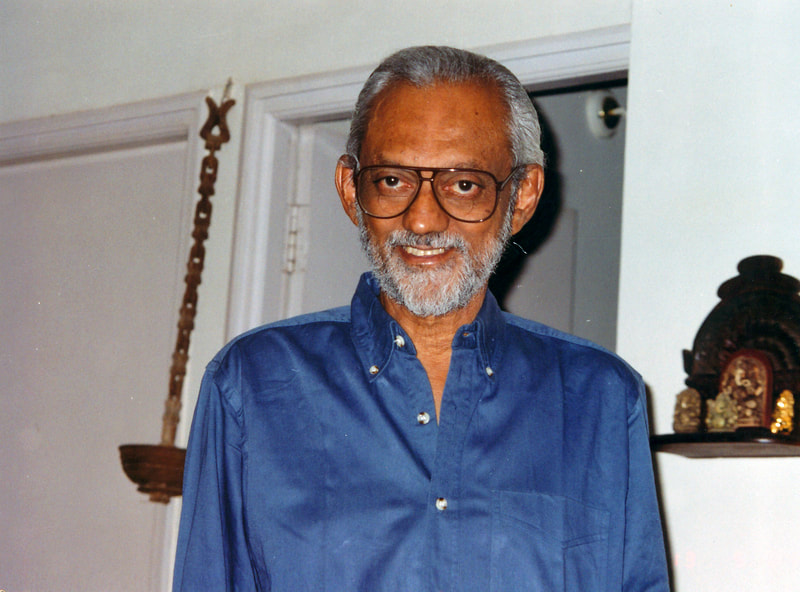

 RSS Feed
RSS Feed
